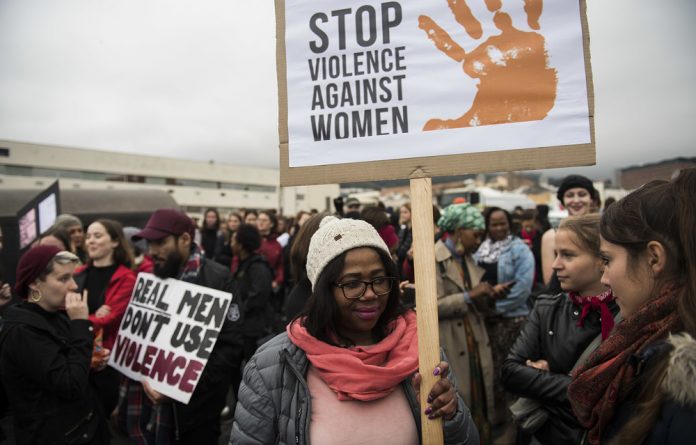Germaine Greer, the well-known Australian feminist, notes in her 1971 classic The Female Eunuch that women have no idea how much men hate them. That men hate women is of course true, since we live in a misogynistic society fed by a global patriarchal culture, but as with all generalisations it misses the wisdom embedded in a more nuanced view.
At a time when gender-based violence (GBV) has become almost commonplace in our culture, it is not often acknowledged how cruel women can be to one another. Even though President Cyril Ramaphosa has recently allocated R1.6-billion to implement an emergency plan to combat GBV, we must also understand the why and how of this phenomenon peculiar to patriarchy.
The violence of women’s behaviour towards one another makes for a dimension of GBV which is uncomfortable, even shameful, to confront in patriarchal culture.
Although one cannot, admittedly, conflate women’s complicity with patriarchal oppression, female cruelty to one another serves a powerful ideological purpose in upholding the myth of gender performativity, that is, that women are natural nurturing caregivers.
This is only partially true as men can also nurture and care. The stereotype of women as natural nurturers feeds into the patriarchal construct of the nuclear family with the man as the provider, the archetypical hunter-gatherer. Conflating women’s social and political role with that of her biological role of mother serves an agenda dear to that of the sexist’s heart.
A spin-off of the discredited notion of the nuclear family is the self-loathing and internalised hatred many women harbour towards themselves if they fail to excel at their “natural” roles.
This dynamic is an integral part of the apparatus of oppression present in all slave economies. Female subculture in patriarchy is just one example. In Quentin Tarantino’s film Django Unchained, the slave overseer (played by Samuel L Jackson), himself a slave, is the hardest on the other slaves. His line of utter astonishment at seeing a black man as a guest on a horse at a plantation (“Who this nigger up on that nag?”) haunts the viewer long after the film has ended.
Phyllis Chesler explores the phenomenon of the slave economy of women in patriarchy in her book Woman’s Inhumanity to Woman (2009) and concludes that many women are desperate for a man on a white horse to rescue them. Chesler cites many examples of this in her book and I refer curious readers to this source. I might quote a few here to elucidate the point. Many women would recognise the social death intended by the forming of cliques, exclusion of others, on-going gossip, frustration, jealousy, and back-stabbing. Perhaps this is part of the reason why heterosexual marriage is so attractive to a great many women. In China and India, for example, the two most populous countries and both with unadulterated patriarchal cultures, heterosexual weddings are big business.
In popular culture, the cruel machinations and games of power play between girls are depicted in Margaret Atwood’s disturbing novel Cat’s Eye, which was shortlisted for the 1989 Booker Prize. This cycle of female-on-female violence reproduces patriarchal oppression.
Sigmund Freud observed that whereas a woman looks for a husband that resembles her father, it is often the (troubled) relationship with her mother that she reproduces in her relationship with her husband.
Consider how frequently the novelist Doris Lessing attempts to exorcise her mother in her many books. This is also true for a great many other women. In the words of Luise Eichenbaum and Susie Orbach, two British psychologists with many years’ experience in counselling women suffering depression: “Many women never feel free of their mothers. They are not separate people, but experience mother as living inside, judging, binding, tempting, and disappointing.”
This could be part of the reason that women are twice as likely than men to suffer from depression. As Chesler, a psychoanalyst and academic in the US, points out, the mother/daughter bond is pivotal to a woman’s relationship with every woman she engages with in the course of her entire life.
Previous research (notably that of Eichenbaum and Orbach) has found that this fractious relationship dynamic is peculiar to patriarchal societies, as it points to a very specific deformation of the female psyche under conditions of male oppression. In a feminist examination of the compromised female psyche in patriarchal culture, Eichenbaum and Orbach wrote in their book Understanding Women (1988) that girls are brought up to put others’ happiness first and this lamentable trend results in many adult women housing an unresolved, needy child version of themselves. Eichenbaum and Orbach explain this problem in the following, striking way:
“Psychological attachment and lack of separation between mothers and daughters and daughters and mothers continue through generations of women. The daughter becomes involved in a cycle that is part of each woman’s experience: attempting to care for mother. As the daughter learns her role as nurturer, her first child is her mother.” (emphasis added)
This child can never grow up as she has to prioritise the needs of others.
The child-in-the-adult-woman phenomenon is further compounded by the push-pull dynamic, whereby a mother aims to empower her daughter but at the same time resents her having opportunities that she never had herself, in the very common fractured mother-daughter relationship under conditions of sexist oppression.
The words of Carol Gilligan will resonate with many women from different generations: “The anger between mothers and daughters is legendary; the love is often held in silence”.
Even in a so-called post-feminist world, this problem is further compounded by what feminists refer to as the Daddy’s Girl syndrome, in which individual women believe they are somehow special and different from the rest of the despised world of women.
Another way in which women’s psychic health is disadvantaged in patriarchy, is a result of the so-called negative Oedipal complex. Whereas boys (who benefit from the straight Oedipus complex) are able to separate from their mothers without too much hassle, girls are often unable to establish psychic boundaries with their mothers and remain in a psychic continuum with their primary caregiver until death. Interestingly, this is not the case in traditional Chinese culture.
Even as caregivers, society often has unrealistic expectations of women as mothers. In this space where GBV focuses so much attention on male-generated violence, it is worth remembering that women also fear woman-based violence, curiously a feature of patriarchal oppression. The stereotyping of women as caring, soft-hearted mothers is a dangerous ideological construct since the female of the species is not necessarily innocent of evil.
With a partial nod to Greer, it is perhaps by focusing attention on this largely unknown aspect of GBV that women could take conscious measures to avoid or ameliorate.
So, thanks for the money, Mr President, but also take note of the complexity of the problem.




